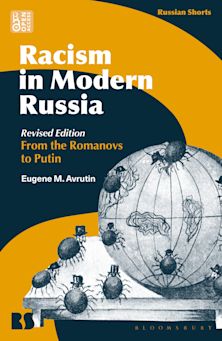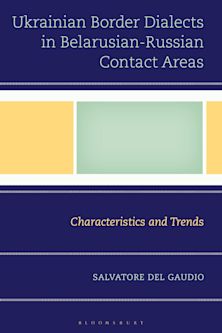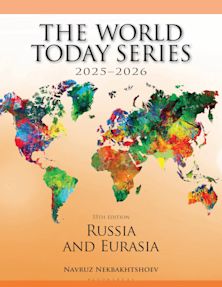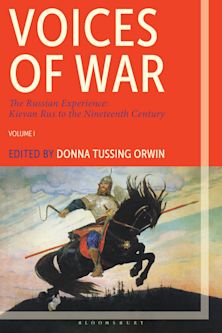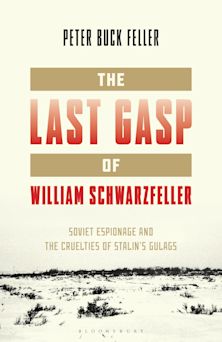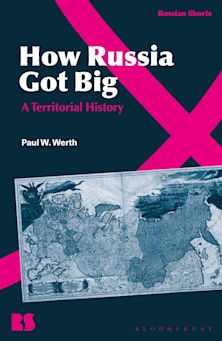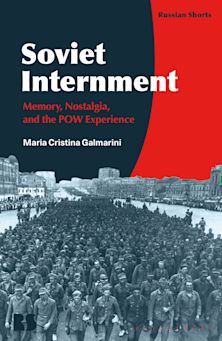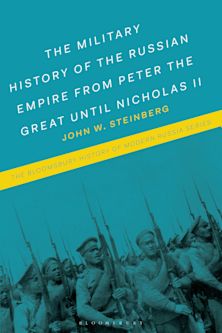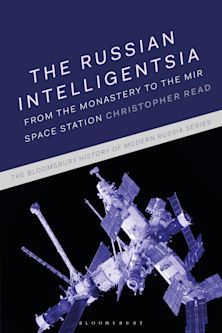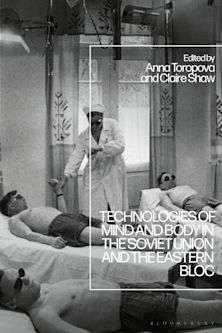- Home
- ACADEMIC
- History
- Russian History
- State Ideology, Science, and Pseudoscience in Russia
State Ideology, Science, and Pseudoscience in Russia
Between the Cosmos and the Earth
State Ideology, Science, and Pseudoscience in Russia
Between the Cosmos and the Earth
You must sign in to add this item to your wishlist. Please sign in or create an account
Description
This book recounts the entangled stories of three distinctly Russian movements—state ideology, Russian cosmism, and Eurasianism—from their inception at the end of the nineteenth century and beginning of the twentieth century until now. Despite harboring pseudoscientific and mystical ideas specific to Russia, all three movements were propagated by their followers as “universal sciences,” and all three vied for scientific supremacy and universal acceptance. Suppressed by the Bolsheviks and their state ideology as “unscientific” in the 1920s, Russian cosmism and Eurasianism led an esoteric underground existence during the Soviet period and re-emerged in the dying years of the Soviet Union, seeking not only to reclaim their “scientific” status but also to potentially fill the perplexing vacuum left by the ensuing demise of Soviet state ideology. This study relates the post-Soviet search for a new state ideology, or new National Idea, at the federal and regional levels, based on the Kremlin’s projects and the case of the ethnic Republic of Kalmykia in south-west Russia.
Table of Contents
Acknowledgments
Introduction
PART I: STATE IDEOLOGY
1 Ideology
2 Soviet Ideology
PART II: PSEUDOSCIENCE
3 Russian Cosmism
4 Eurasianism
PART III: KALMYKIA
5 Kalmykia and Its History
6 Kirsan Ilyumzhinov, the Nebulous Savior
PART IV: STATE IDEOLOGY OF KALMYKIA
7 Ideology of Wisdom
8 Kirsan Ilyumzhinov, the Fallen Angel
9 Why Do People Still Need Ideology?
PART V: FUTURE IDEOLOGY
10 What's Next?
11 Digital Ideologies?
Bibliography
Index
About the Author
Product details
| Published | Feb 25 2022 |
|---|---|
| Format | Ebook (Epub & Mobi) |
| Edition | 1st |
| Extent | 314 |
| ISBN | 9781666905694 |
| Imprint | Lexington Books |
| Illustrations | 5 b/w photos; |
| Publisher | Bloomsbury Publishing |
About the contributors
Reviews
-
Baasanjav Terbish is offering us an impressive and original analysis on how parascience, ideology, and nationalism articulate in Russia’s regions. This book invites us to take seriously what is too often dismissed as marginal, and study how much everyday political legitimacy in Russia is rooted in meaning-producing eclectic ideologies that combine New Age religion, local folklore, and nationhood narratives.
Marlene Laruelle, George Washington University
-
Between the Cosmos and the Earth synthesizes Russia's ideological projects and intellectual experiments across history, geography, and regime. With its case study of the Russian republic of Kalmykia, a small, Buddhist-practicing region on the country's southern steppe, this book takes a novel approach to understanding how the Russian state has legitimated itself in the past and today. The end result is wide-ranging and erudite, offering a new perspective on how contemporary Russia has been shaped by its ethnic and ideational diversity.
Edward C. Holland, University of Arkansas
-
This fascinating book reveals important aspects of Russia hitherto almost unknown in the west. Using extensive field research, Terbish shows how one nation, the Kalmyks, reacted to their history and position in the Federation to create their own idiosyncratic ‘spiritual’ ideology in the 1990–2000s. This rich and clearly written account describes how local Buddhist thought combined with deep all-Russian ideological trends such as cosmism, pseudoscience, and Eurasianism. It reveals the presence of mystical thinking that can lurk beneath the politics and the modern face of Russia.
Caroline Humphrey, University of Cambridge
-
This wide-ranging and well-written book renders the unfamiliar culture of Kalmykia in Russia widely accessible. As a space science scholar, I was particularly fascinated by the section on ‘cosmism’. Tsiolkovsky—a great scientist and visionary—is celebrated worldwide as an evangelist of space exploration. But he wasn’t alone and wasn’t just focused on science in the narrow sense: he was embedded in a pervasive culture of ‘alternative science’, art and mysticism. Dr. Terbish’s research highlights other personalities, less familiar in the West, who influenced public attitudes toward space throughout the Soviet era—and indeed up to the present. ‘Cosmism’ represents just one chapter in this impressive book, which deserves a readership extending beyond academia.
Martin Rees, professor emeritus of cosmology and astrophysics, University of Cambridge, and author of Universe and Just Six Numbers

ONLINE RESOURCES
Bloomsbury Collections
This book is available on Bloomsbury Collections where your library has access.















